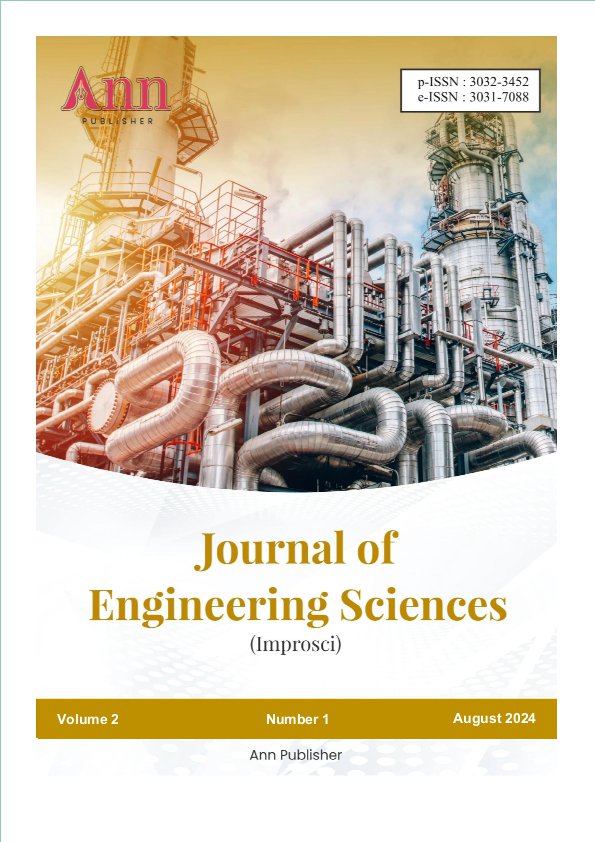Application of Participatory Ergonomic Method to Reduce Musculoskeletal Disorders With Rapid Whole Body Assessment (REBA) at PT. Adyawinsa Stamping Industries
Main Article Content
Abstract
PT. Adyawinsa Stamping Industry is one of the automotive companies in Karawang, West Java. In the production process, most of the work has poor posture, which can cause VascularDisorders (MSDs). In the process of eliminating and reducing the risk of MSDs in the workplace, the level of MSD risk experienced by workers is calculated using the REBA method. The results of the REBA calculation obtained several activities with values above 9 (meaning that an improvement is needed). To improve the work system using the Participatory ergonomic (PE) method involving the operator, management and ergonomics. The results of the application of PE in helping to reduce the risk level of MSDs are engineering (making auxiliary tools and also management engineering) that can improve the work posture used, namely using the REBA method. Based on the results of the REBA calculation after the improvement, the risk generated is a risk level smaller than the previous posture, namely medium and low. Real improvements are hoped to create a safe, comfortable, and productive workplace.
Article Details

This work is licensed under a Creative Commons Attribution 4.0 International License.
References
Oakman J, Macdonald W, McCredie KB. Psychosocial hazards play a key role in differentiating MSD risk levels of workers in high-risk occupations. Applied Ergonomics. 2023 Oct 1; 112:104053–3.
Gill T.K, Manasi Murthy Mittinty, March L, Steinmetz JD, Culbreth GT, Cross M, et al. Global, regional, and national burden of other musculoskeletal disorders, 1990–2020, and projections to 2050: a systematic analysis of the Global Burden of Disease Study 2021. The Lancet Rheumatology. 2023 Nov 1; 5(11):e670–82.
Akbar KA, Try P, Viwattanakulvanid P, Kallawicha K. Work-Related Musculoskeletal Disorders Among Farmers in the Southeast Asia Region: A Systematic Review. Safety and Health at Work [Internet]. 2023 Sep 1 [cited 2023 Nov 15]; 14(3):243–9. Available from: https://www.sciencedirect.com/science/article/pii/S2093791123000276
de Kok MJ, McGuinness D, Shiels PG, de Vries DK, Nolthenius JBT, Wijermars LG, et al. The Neglectable Impact of Delayed Graft Function on Long-term Graft Survival in Kidneys Donated After Circulatory Death Associates With Superior Organ Resilience. Annals of Surgery. 2019 Nov; 270(5):877–83.
Dianat I, Afshari D, Sarmasti N, Sangdeh MS, Azaddel R. Work posture, working conditions and musculoskeletal outcomes in agricultural workers. International Journal of Industrial Ergonomics. 2020 May;77:102941.
Sutalaksana, I. Z., Anggawisastra, R., & Tjakraatmadja, J. H. (2006). Work System Design Techniques. Bandung: ITB Publishers.
Haims MC and Carayon, P., (1997). Theory and practice fpr the implementation
of 'in-house', continous improvement participatory ergonomics
program, Applied Ergonomics, 29, 461-472.
Sukapto, JR Octavia, PAD Pundarikasutra, PK Ariningsih, S Susanto, 2019, Improving Occupational Safety and Health in Footwear Home Industry through Implementation of ILO-PATRIS, NOSACQ-50 and Participatory Ergonomics: A Case Study, International Journal of Technology, University of Indonesia
Lanoie, Paul, and Sophie, Tavenas., [1996]. Cost and benefit of preventing
workplace accidents: The case of participatory ergonomics, Safety
Science, 24, 181-196
Corlett, E., & Mcatamney, L. (1988). Ergonomics in the Workplace. Physiotherapy (United Kingdom). https://doi.org/10.1016/S0031-9406(10)63376-7
Tarwaka, Bakri, & Sudiajeng, L. (2005). Ergonomics for safety, occupational health and productivity.
Setyanto, N. W., Efranto, R., Lukodono, R. P., & Dirawidya, A. (2015). Ergonomics Analysis in the Scarfing Process by OWAS, NIOSH and Nordic Body Map's Method at Slab Steel Plant's Division. international Journal of Innovative Research in Science, Engineering and Technology, 4(3), 1086–1093 https://doi.org/10.15680/IJIRSET.2015.0403060
Sari, A. D., Anwar, A. R., & Suryoputro, M. R. (2018). Work postural analysis and musculoskeletal injury risk in critical working station at XYZ Ceramics Yogyakarta. MATEC Web of Conferences, 154. https://doi.org/10.1051/matecconf/201815401083
Hignett, S., & McAtamney, L. (2000). Rapid Entire Body Assessment (REBA). Applied Ergonomics. https://doi.org/10.1016/S0003-6870(99)00039-3
Wignjosoebroto, S. (2003). Ergonomics, motion and time studies: analytical techniques for increasing work productivity (Ed.1 Cet.3). Jakarta: PT. Guna Widya.
Saptadi, S., & Wijanarko, D. (2008). Designing Adjustable Tables by Paying Attention to the Working Posture of Manual Material Handling Workers (Case Study at PT. Coca – Cola Bottling Indonesia). J@Ti Undip : Journal of Industrial Engineering, 2, No.2.


